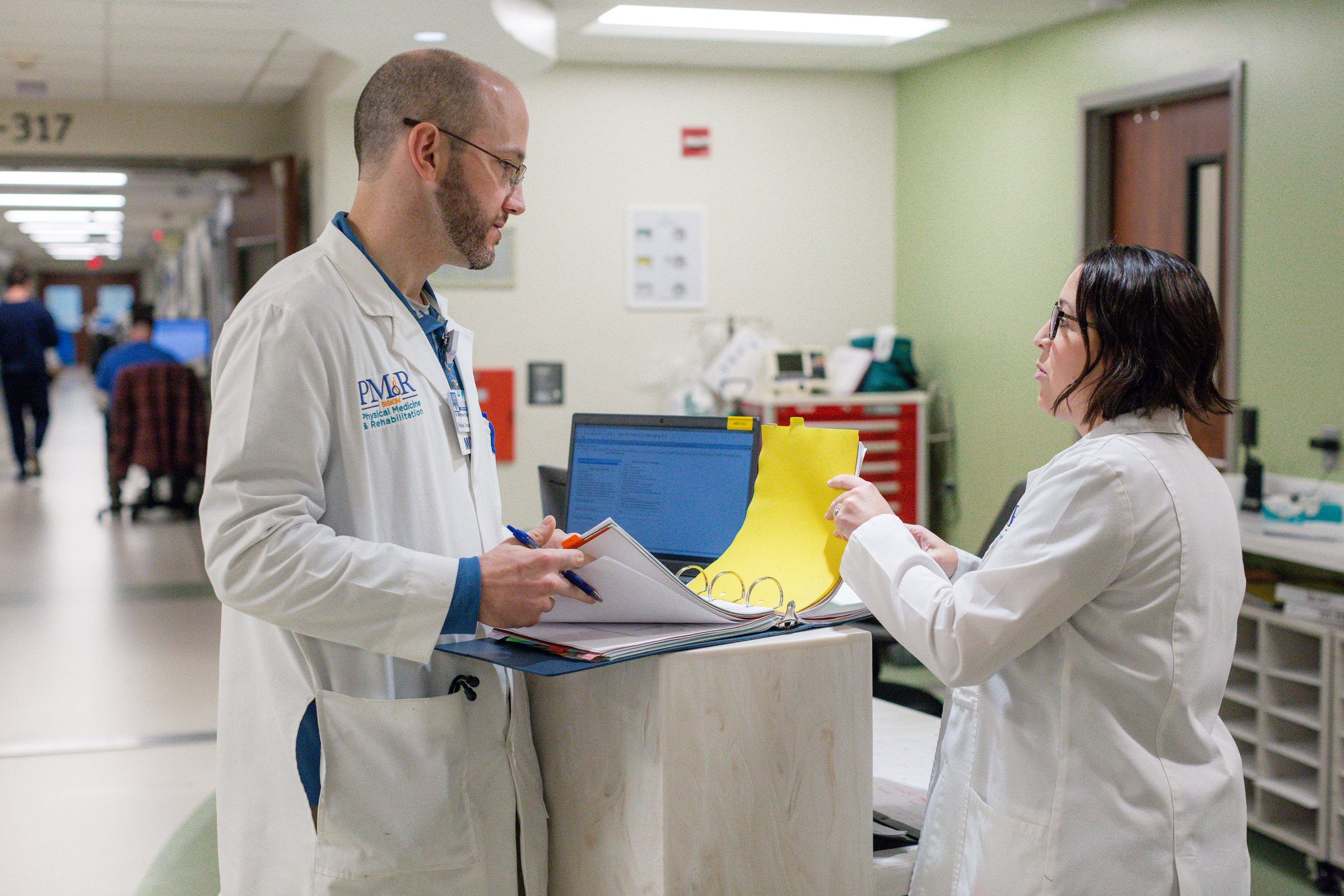
Spasticity
The Siskin Hospital Spasticity Management Clinic provides an opportunity for a team of skilled health care professionals (led by a physician who specializes in spasticity management) to diagnose, treat, and create a management plan for individuals with movement disorders.
___________________________________
Spasticity is a condition in which certain muscles in the body become stiff or tight. It often limits a person’s ability to move safely and live independently. It can occur as a bent wrist or elbow, closed fist, arm held tightly against the chest, bending at the hip or knee, crossing of the leg or ankle, and toes flexing downward.
Spasticity can be caused by stroke, traumatic brain injury, spinal cord injury, cerebral palsy, multiple sclerosis, tumors, and other diagnoses.
Concerning strokes, spasticity will often not occur immediately, causing concern that the stroke is getting worse over time. Approximately 39 percent of stroke victims develop spasticity within the first year of stroke, so it’s very important to discuss any signs of spasticity with your family physician, neurologist, or physical medicine and rehabilitation specialist.
____________________________________
The Siskin Hospital Spasticity Management Clinic
Treatment comprises medical recommendations which may include:
Oral Spasticity Medications
Botox/ Myoblock
Inthrathecal Medications
Referral for Surgery
Botox, Dysport and Xeomin are three commercially available medications that are derived from botulinum toxin. These medicines are injected directly into the specific muscles that are overly tight and spastic. They help by relaxing the muscle and increasing range of motion and function.
There are minimal side effects associated with botulinum toxin injections. Botulinum toxin is not for everyone but in the appropriate individuals, it can be extremely effective.
Physical & Occupational Therapy Recommendations which may include:
Stretching, Strengthening, and Motor Re-Training
Casting
Biofeedback
Mobility Re-Training (Walking, Wheelchair)
Self Care Re-Training
Assistive Technology
Leg/ Foot
Arm/ Hand
Orthotics, Splints, & Bracing Recommendations which may include:
Wheelchair Prescription/Modification Recommendations
Exercise Physiology Recommendations to assist with the transition to a Community-Based Fitness Program.
Education of the patient and their family
__________________________________________
To schedule an appointment, please call 423.634.1400 or email outpatient@siskinrehab.org.
